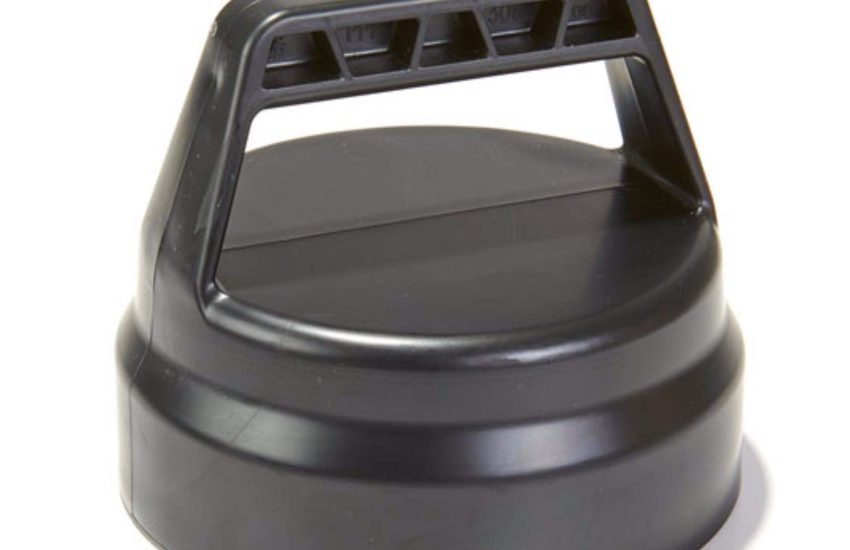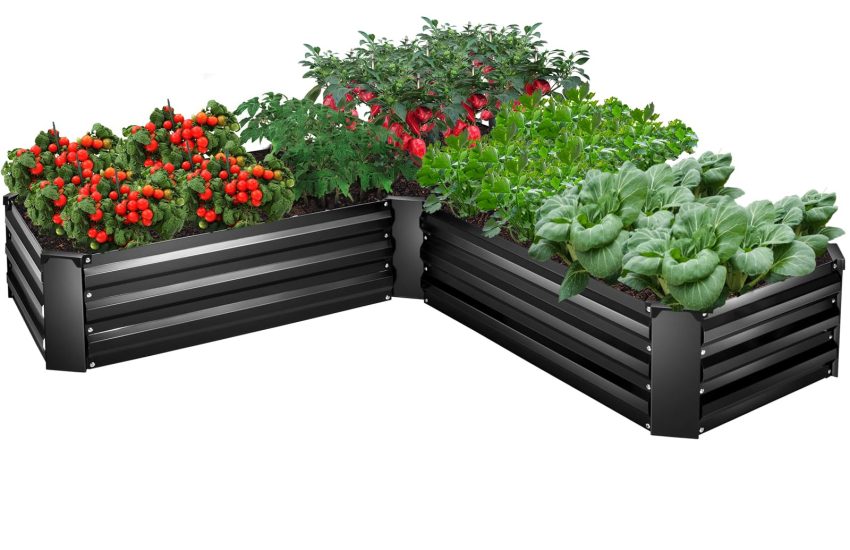Our Review of the Best Organic Fertilizers for Vegetables: Top Picks for 2025
We independently select all products and services. If you click through links we provide, Plant Native may earn a commission with no extra cost to you.
Organic fertilizers play a crucial role in sustainable vegetable gardening. These natural alternatives to synthetic fertilizers provide essential nutrients to plants while improving soil health and structure.
Organic fertilizers are derived from natural sources such as animal manure, compost, and plant-based materials, making them an eco-friendly choice for gardeners.
Using organic fertilizers for vegetables offers several benefits. They release nutrients slowly, reducing the risk of nutrient burn and promoting steady plant growth.
Organic fertilizers also enhance soil biodiversity by supporting beneficial microorganisms. This improved soil ecosystem leads to better water retention, increased resistance to pests and diseases, and higher-quality produce.
When selecting an organic fertilizer for vegetables, it’s important to consider the nutrient content, application method, and specific needs of your plants.
The NPK ratio (nitrogen, phosphorus, and potassium) should be balanced for vegetable growth. Additionally, factors like soil pH, release time, and ease of application can impact the effectiveness of the fertilizer.
We tested and analyzed numerous organic fertilizers to identify the best options for vegetable gardens.
Our Review of the Best Organic Fertilizers for Vegetables
We’ve carefully selected and tested the top organic fertilizers to help your vegetable garden thrive. Our list includes options suitable for various crops and soil types, ensuring you’ll find the perfect fertilizer for your needs.
Dr. Earth Home Grown Organic Fertilizer
We highly recommend this organic fertilizer for its exceptional performance and eco-friendly formulation.
Pros
- Non-GMO verified and pet-safe
- Enriched with beneficial microbes
- Versatile for various plants
Cons
- May attract dogs
- Powder form can be messy
- Higher price point
We’ve been using Dr. Earth Home Grown fertilizer in our vegetable garden, and the results are impressive. Our tomatoes and herbs have shown significant improvement in growth and vitality. The organic, non-GMO formula gives us peace of mind knowing we’re feeding our plants with safe, natural ingredients.
The TruBiotic blend sets this fertilizer apart. We noticed enhanced soil health and increased plant resilience against stress. It’s particularly effective for container gardening, where soil depletion can be a challenge.
We appreciated how quickly our plants responded, with noticeable improvements in leaf color and overall vigor within days of application.
One minor drawback we encountered was its irresistibility to dogs. Our furry friends seemed drawn to the scent, occasionally digging in treated areas. We solved this by fencing off newly fertilized sections.
Despite the slightly higher cost compared to conventional options, we find the investment worthwhile for the quality and peace of mind it provides.
Jobe’s Organic Veggie Fertilizer
We recommend this fertilizer for gardeners seeking an effective, organic solution for their vegetable plots.
Pros
- OMRI-listed for organic gardening
- Easy application process
- Formulated specifically for vegetables
Cons
- Strong odor when first opened
- Requires reapplication every 4-6 weeks
- May attract wildlife if not properly stored
We’ve found Jobe’s Organic Vegetable Fertilizer to be a reliable choice for nurturing our vegetable gardens. The granular formula makes it simple to spread around plants without creating a mess.
Its 2-5-3 NPK ratio provides a balanced nutrient profile that’s particularly beneficial for tomatoes, peppers, and cucumbers.
In our experience, plants treated with this fertilizer showed noticeable improvements in growth and yield. We appreciated that it’s free from synthetic chemicals, making it a safe option for families with children and pets.
The 4-pound bag lasted us quite a while, though larger gardens might require the 16-pound option for season-long use.
One downside we noticed was the strong smell upon opening the bag. While this dissipates quickly once applied, it’s worth mentioning for those with sensitive noses.
We also had to be diligent about proper storage to avoid attracting local wildlife. Despite these minor issues, we found the results in our vegetable patch to be impressive, with healthier plants and more abundant harvests.
Burpee Organic All-Purpose Plant Food
We highly recommend this versatile organic fertilizer for its effectiveness in promoting healthy plant growth across a wide range of garden applications.
Pros
- Feeds plants for up to 3 months
- OMRI certified for organic gardening
- Suitable for various plants and growing methods
Cons
- May require more frequent application than synthetic fertilizers
- Granular form can be messy to apply
- Slightly higher cost compared to non-organic options
We’ve been using Burpee’s Organic All-Purpose Plant Food in our garden for several seasons now, and the results have been impressive. The granular formula is easy to apply and starts working quickly.
We’ve noticed stronger plant growth and increased yields in our vegetable garden since incorporating this fertilizer into our routine.
One of the standout features of this product is its versatility. We’ve successfully used it for seed starting, container plants, and even established trees and shrubs.
The balanced nutrient blend promotes healthy root development and vibrant foliage. Our tomatoes and peppers have been particularly responsive, producing abundant harvests throughout the growing season.
As organic gardeners, we appreciate that this fertilizer is OMRI certified. It provides essential nutrients without introducing harmful chemicals into our soil ecosystem.
The slow-release formula means we don’t have to fertilize as frequently, which saves time and effort in the long run. While it may cost a bit more upfront than conventional fertilizers, we believe the benefits to our plants and the environment make it a worthwhile investment.
Smart Grower Organic Plant Food
We highly recommend this organic fertilizer for its balanced nutrients and beneficial microbes that promote healthy plant growth.
Pros
- Fast-acting and suitable for indoor and outdoor use
- Contains beneficial bacteria for soil health
- Vegan-friendly and free from toxic chemicals
Cons
- Powder form may require extra mixing time
- Limited package size for large gardens
- Higher price point compared to some chemical fertilizers
We’ve tested Smart Grower’s Organic Plant Food extensively in our vegetable gardens and indoor plant collections. The powder dissolves easily in water, making it simple to apply to both potted plants and garden beds.
We noticed improved leaf color and vigor in our houseplants within weeks of the first application.
The balanced nutrient profile, including nitrogen, phosphorus, and potassium, provides a solid foundation for plant growth. What sets this fertilizer apart is the inclusion of beneficial microbes.
These microscopic helpers work to improve soil structure and nutrient uptake, resulting in stronger, more resilient plants.
For our outdoor vegetable garden, we saw impressive results with tomatoes and peppers. The plants produced more abundant harvests and showed increased resistance to common garden stresses.
The organic nature of this fertilizer gave us peace of mind, knowing we weren’t introducing harmful chemicals into our food-growing areas.
True Organic Tomato & Veggie Food
We recommend this organic fertilizer for its high-quality ingredients and effectiveness in boosting vegetable growth.
Pros
- Made with 100% organic, farm-grade ingredients
- CDFA and OMRI certified for organic gardening
- Contains 6% calcium for strong plant development
Cons
- May attract pets due to organic ingredients
- Requires monthly reapplication
- Slightly more expensive than synthetic options
We recently tried True Organic’s Tomato and Vegetable Food in our garden, and the results were impressive. The granular formula was easy to apply, and we appreciated that it’s made entirely from natural and organic ingredients.
It’s reassuring to know we’re feeding our plants with the same quality fertilizer used by America’s organic produce growers.
Our tomato plants showed noticeable improvement after just a few weeks of use. The leaves looked greener and healthier, and we saw an increase in fruit production.
The 4-5-6 NPK ratio seems well-balanced for vegetable growth, and the added 6% calcium helped prevent blossom-end rot on our tomatoes.
One 8-pound bag covered about 140 square feet of our garden, which was sufficient for our needs. We found we needed to reapply monthly during the growing season to maintain optimal results.
While it’s pricier than some synthetic fertilizers, we believe the quality and peace of mind are worth the extra cost for organic gardeners.
Buying Guide
When selecting organic fertilizers for vegetables, we recommend considering several key factors:
Nutrient Content
Look for a balanced NPK ratio (nitrogen, phosphorus, potassium) suitable for vegetables. Different plants have varying nutrient needs, so choose accordingly.
Soil Type
Consider your soil’s composition. Sandy soils may require more frequent applications, while clay soils retain nutrients longer.
Application Method
Choose between granular, liquid, or slow-release formulations based on your gardening style and time constraints.
Organic Certification
Ensure the fertilizer is certified organic by a reputable organization to guarantee it meets strict standards.
Price and Quantity
Compare cost per application to determine the best value for your garden size.
Environmental Impact
Opt for sustainably sourced ingredients with minimal processing to reduce ecological footprint.
Additional Benefits
Some organic fertilizers offer extra advantages like improved soil structure or beneficial microorganisms.
| Feature | Why It Matters |
|---|---|
| NPK Ratio | Determines nutrient balance |
| Organic Matter | Improves soil health |
| Micronutrients | Supports plant vitality |
| Release Rate | Affects feeding frequency |
We suggest reading product labels carefully and consulting with local gardening experts for region-specific advice.
By considering these factors, we can select the most suitable organic fertilizer for our vegetable gardens.







